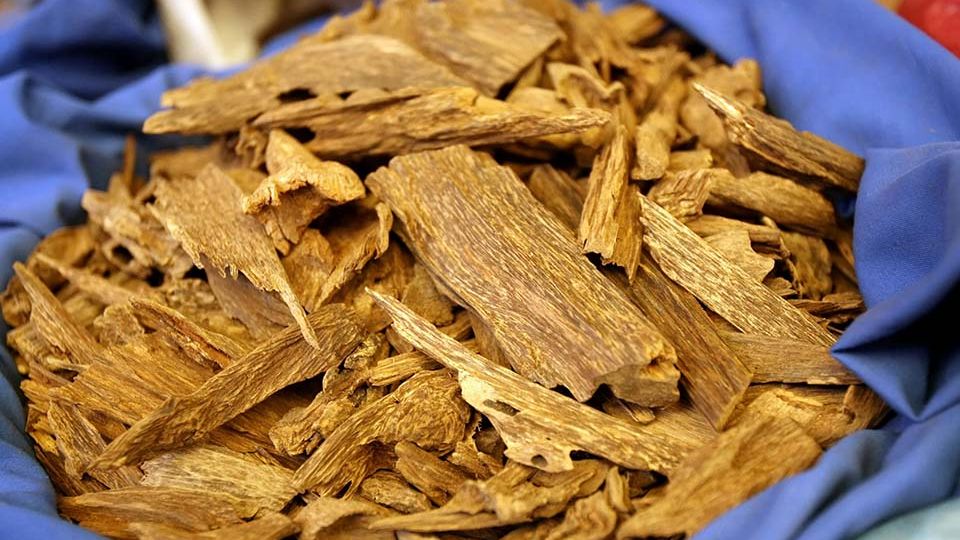May 6, 2025
BANGKOK – Bhutan has entered into a strategic partnership with Thailand to improve its agarwood farming sector and enhance the livelihoods of its rural communities.
A Memorandum of Understanding (MoU) was signed on April 28 with Maehongson Organic Social Enterprise Limited (MOSEL), a Thai private company, focusing on technology transfer, training initiatives, and access to both domestic and international markets for Bhutanese agarwood products.
The agreement was formalised between the Department of Forests and Park Services (DoFPS), under the Ministry of Energy and Natural Resources, and MOSEL.
The Ugyen Wangchuck Institute for Conservation and Environmental Research (UWICER) will lead the collaboration, leveraging MOSEL’s expertise in organic agriculture and forestry, as well as its established community networks.
UWICER recognised MOSEL’s potential to facilitate the transfer of agarwood production technology from Thailand to Bhutan, leading to the strengthening of this bilateral relationship. The partnership aims to foster cooperation through exchange programmes and joint research in agarwood development within Bhutan.
MOSEL will play a key role in assisting with research, development, and the transfer of successful inoculation technology, along with integrated product processing techniques, including equipment support.
Furthermore, the Thai company will work to establish vital market linkages for the export of Bhutanese agarwood products by connecting with agarwood companies and communities in Thailand.
The principal forestry officer at UWICER, Dendup Tshering said that the MOSEL will facilitate comprehensive training for Bhutanese staff on agarwood inoculum development, delivery techniques, and product processing at established agarwood centres in Thailand.
“Once our people are trained, they will utilise this knowledge and these skills to further advance agarwood research and development within our own country,” Dendup Tshering said.
The MoU also anticipates MOSEL’s support in the procurement of necessary agarwood oil distillation and processing equipment from Thailand.
Dendup Tshering said that Bhutanese agarwood had not been exported to third countries up to that point, although a few farmers had made attempts on their own. UWICER, in collaboration with DoFPS, is actively working to secure reliable markets for Bhutanese agarwood.
“Thailand has established agarwood firms actively involved in processing and trading in the international market,” he said. “Through this MoU, we are optimistic that MOSEL will facilitate collaborations with these Thai firms for the effective marketing of Bhutanese agarwood products.”
The partnership with MOSEL will also explore potential markets beyond Thailand, particularly in the Middle East.
While a formal monitoring mechanism is not yet in place, the agreement also includes provisions for termination should the partnership be deemed not beneficial for Bhutan.
To further enhance productivity, production volumes, and market reach, UWICER is also pursuing a separate MoU with Kasetsart University in Thailand for scientific research and technical collaboration, which is currently pending signing.
Challenges and way forward
Highlighting the challenges in agarwood farming, including the natural three to four year growth cycle for agar formation, Dendup Tshering said that the country has yet to establish its own oil distillation and quality testing capabilities, which are prerequisites for the export market.
“Through this partnership, we are hopeful that valuable agarwood technology will be transferred to Bhutan, ultimately benefiting farmers through increased income generation,” Dendup Tshering said.
DoFPS is advocating for the establishment of a national agarwood growers’ network to facilitate community-based processing and marketing. This will help to ensure equitable participation and benefit sharing while mitigating the potential for exploitation by intermediaries.
While progress in agarwood farming has been achieved, the immediate priority is to increase agarwood production.
“To produce agarwood, we need to first develop agarwood inoculum (inducer) and develop its delivery techniques,” Dendup Tshering said. “After the inoculum is delivered (injected) into the trees through successful delivery methods, agar formation begins, taking a minimum of three years from inoculation to harvest.”
UWICER is currently seeking financial support from donors and the government to promote the adoption of inoculum technology.
To date, UWICER has conducted research in agarwood inoculum development and delivery techniques, with preliminary research now complete. Essential documents for agarwood development and marketing have also been developed, including the National Agarwood Framework, Agarwood Business Plan, and Non-Detriment Findings of Agarwood.
In the long term, UWICER envisions establishing a dedicated agarwood centre, scaling up the growers’ network, enhancing branding and certification processes, and improving market access both domestically and internationally.


